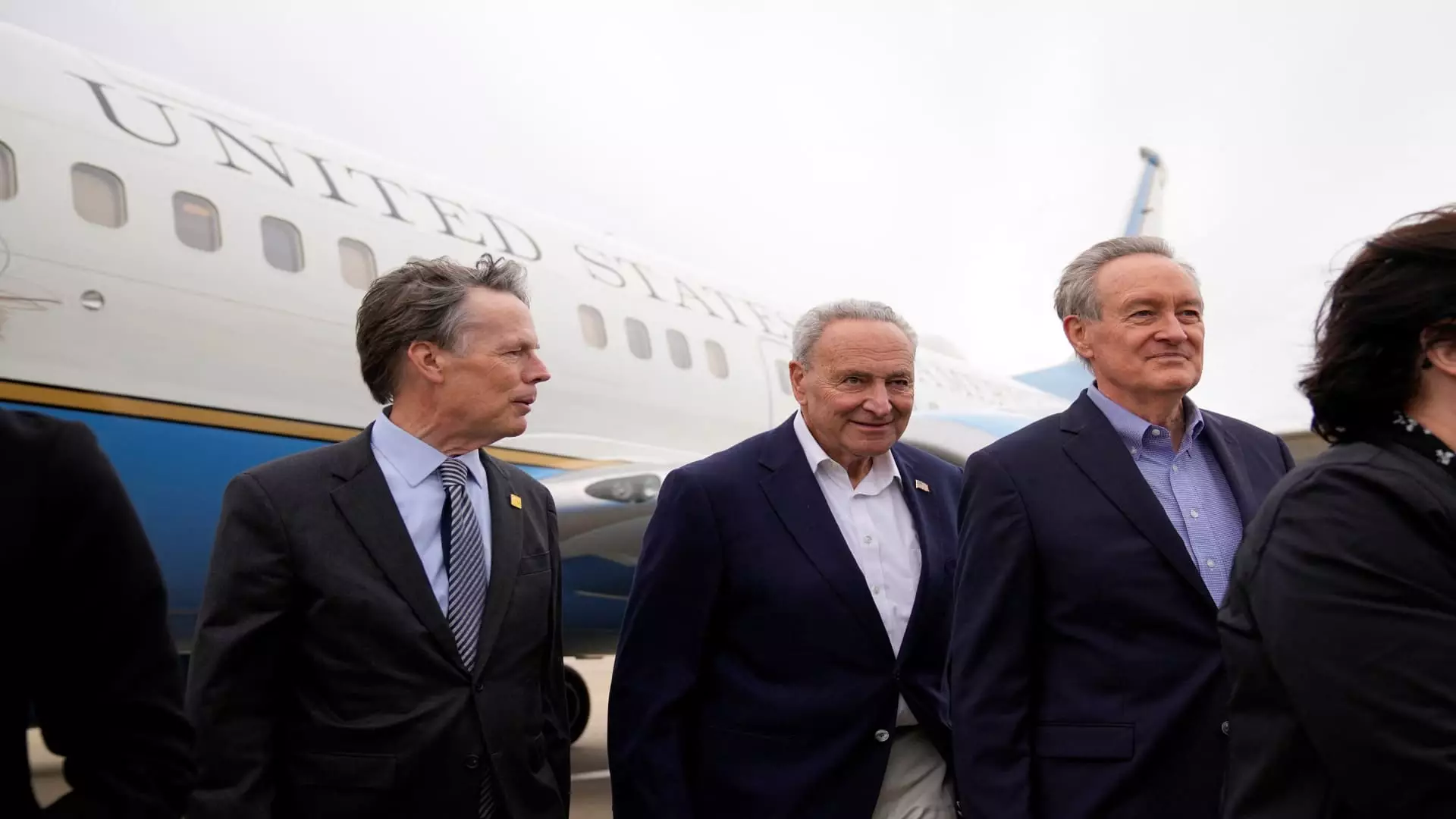A delegation of U.S. lawmakers led by Senate Majority Leader Chuck Schumer arrived in China on Saturday, marking the first congressional visit to the country since 2019. This visit takes place amidst a significant deterioration in relations between the United States and China, as both countries grapple with complex issues on multiple fronts. The purpose of this congressional delegation’s visit is to lay the groundwork for a potential meeting between Presidents Joe Biden and Xi Jinping, which is tentatively scheduled for November. The delegation consists of six senators from both parties and aims to address crucial topics such as trade, technological advancements, human rights, and international cooperation.
On an overcast and windy afternoon, the delegation of senators landed in Shanghai, being greeted with both apprehension and anticipation. This visit holds immense importance as it strives to bridge the gap between the two nations, especially since no U.S. lawmakers have visited China since COVID-19 restrictions were lifted back in December 2020. It is evident that China desires a more objective understanding of China within the U.S. Congress, as expressed in their statement earlier this week. However, the tensions between the two nations were palpable, with China’s commerce ministry condemning new U.S. restrictions on Chinese companies as “economic coercion and unilateral bullying.”
During their visit, Schumer and his colleagues plan to emphasize the need for reciprocity from China concerning U.S. business in trade. Fair trade practices and equal opportunities for American businesses are pivotal aspects to be addressed. Moreover, the delegation aims to discuss preserving American leadership in advanced technologies for national security. With the ongoing race for technological dominance, it is crucial for the United States to maintain its competitive edge to safeguard its national interests.
Another vital aspect to be highlighted during the visit encompasses discussions on human rights. It is essential to address concerns regarding human rights violations and seek constructive dialogue to make progress on this front. Additionally, the delegation seeks to address fentanyl production and China’s role in the international community, analyzing areas where potential cooperation could be fostered.
A successful and productive visit by the congressional delegation holds the potential to pave the way for a summit meeting between Presidents Biden and Xi in November. The Asia-Pacific Economic Cooperation (APEC) leaders meeting in San Francisco next month presents an opportune occasion for such a summit. Meeting with Xi Jinping would be a significant step forward, and it may increase the likelihood of a subsequent meeting between Xi and Biden. The White House has expressed its support for Schumer’s visit and maintains communication with him throughout the trip.
This visit by Schumer and his colleagues signals a potential improvement in China-U.S. relations. Wang Yiwei, the director of the Institute of International Affairs at Renmin University of China, suggests that if the discussions proceed positively, there is a real possibility of President Xi meeting with Schumer. The outcome of their meeting would significantly impact the likelihood of a Xi-Biden summit occurring in the near future. These consequential diplomatic endeavors between the United States and China will shape not only bilateral relations but also the dynamics of the global geopolitical landscape.
As the delegation of U.S. lawmakers embarks on this significant journey to China, it is crucial to acknowledge the critical state of China-U.S. relations. The visit aims to address various pressing concerns, including fair trade practices, technological advancements, human rights, and international cooperation. A successful visit holds the potential to facilitate a meeting between Presidents Biden and Xi, thus influencing the future trajectory of relations between these two global superpowers. The complexities of this pivotal moment in history necessitate open-mindedness, cautious optimism, and a commitment to diplomacy to achieve mutually beneficial outcomes.


Leave a Reply